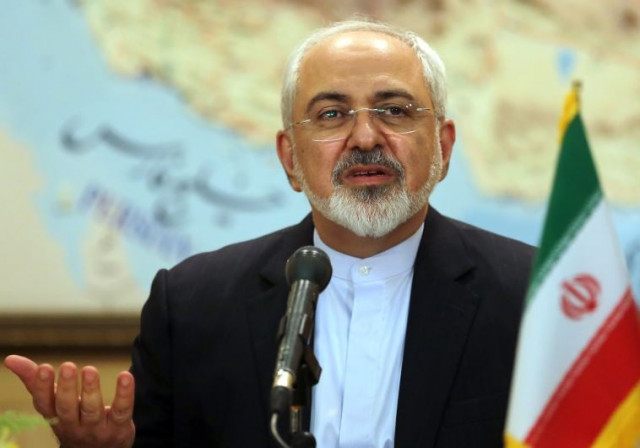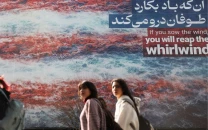Iran calls the new US visa law breach of the nuclear deal
Zarif called the new US legislation discriminatory and asked Europeans to oppose the law

Mohammad Javad Zarif. PHOTO: AFP
The new measure passed by the US Congress will prevent visa-free travel to the United States for people who have visited Iran or hold Iranian nationality.
The measure, which President Barack Obama signed into law on Friday, also applies to Iraq, Syria and Sudan, and was introduced as a security measure after Islamic State attacks in Paris and an attack in San Bernardino, California.
French Senate head, on rare Iran visit, raps US visa law
Iran, a Shia Muslim theocracy staunchly opposed to Sunni radicalism espoused by groups like Islamic State, says its inclusion on the list is intended to undermine the nuclear deal, known as the JCPOA.
"If the Congress law is implemented as it is, it would definitely be a breach (of JCPOA)," Iranian Foreign Minister Mohammad Javad Zarif was quoted as saying by the Tasnim news agency, speaking at a joint press conference with his Mongolian counterpart, Lundeg Purevsuren.
Zarif said he had raised the issue with US Secretary of State John Kerry at their meeting in New York this month and also in several emails in the last 10 days, hoping that "these measures stop any obstacle in implementation of the JCPOA."
Iran sees Israeli lobby behind US visa waiver changes
Appeal to Europeans
Citizens of 38 countries, most of them in Europe, are eligible for waivers under the US Visa Waiver Program.
Under the new restrictions, citizens who have visited Iran, Iraq, Syria or Sudan in the last five years, and those who hold dual nationality with one of those countries, are excluded.
In a meeting with French Senate President Gerard Larcher in Tehran on Monday, Zarif called the new US legislation discriminatory and asked Europeans to oppose the law that was "against their independence".
'Visa waiver' travelers would be fingerprinted under Senate bill
US Secretary of State John Kerry wrote to Zarif on Saturday to assure him Washington remained committed to the JCPOA, noting that the White House can waive the new requirements in individual cases.
Iran has been promised a lifting of international sanctions hobbling its economy once it has restrictions on its nuclear programme in place as stipulated by its deal with the powers.
Iranian officials have said the visa measure will adversely affect bilateral relations.
Some suggest the measure is effectively a new sanction against the Islamic Republic that could jeopardise the nuclear deal.


















COMMENTS
Comments are moderated and generally will be posted if they are on-topic and not abusive.
For more information, please see our Comments FAQ